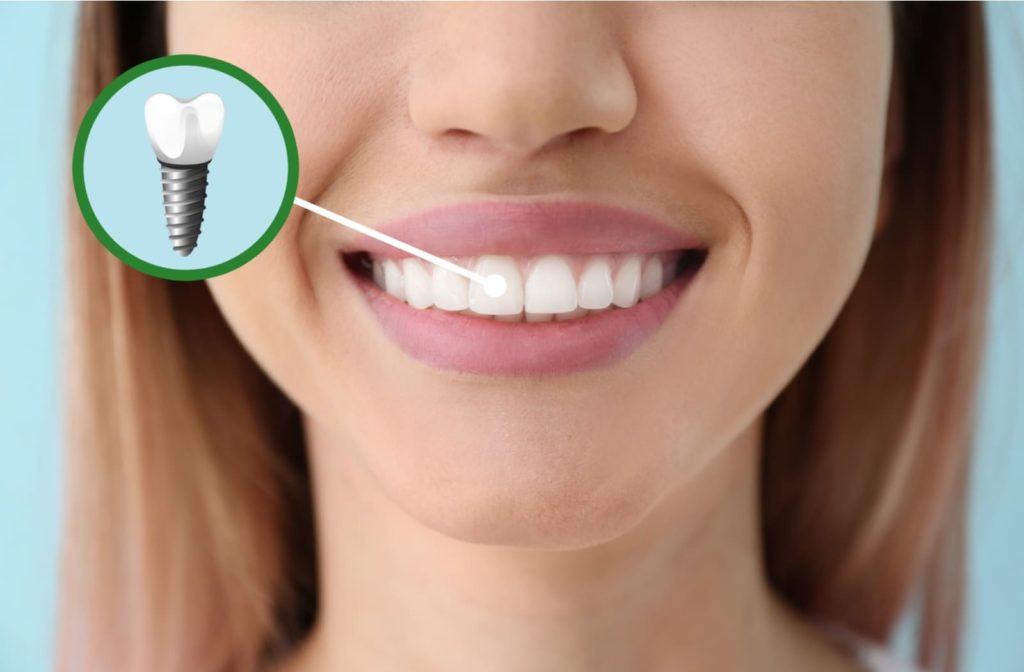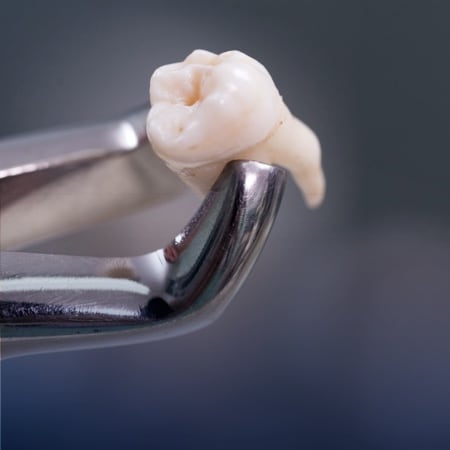A Permanent & Comfortable Solution
If you have 1 or more missing teeth, it’s heartening to know that many options are available for their replacement. Your dentist may recommend a bridge, partials, dentures, or dental implants.
Dental implants can be used to replace missing roots, and provide support to artificial replacement teeth. Many patients opt for dental implants because they have a more natural appearance, and are considered more comfortable.
Dental implants can be an excellent alternative if bridges and dentures are ill-fitting, or if there’s a lack of natural teeth roots to support denture building or bridgework.
Dental implants work best if you:
- Have 1 or more missing teeth
- Have adequate bone structure to secure the implants
- Have healthy oral tissue
- Can commit several months to the surgical and healing process
- Do not use tobacco products
- Have a fully developed jawbone, or are interested in special implants or bone grafts in areas that will not provide sufficient foundation for an implant.
Dental implant surgery is a procedure where an artificial titanium metal post is inserted into the jawbone to replace the root of a natural tooth. This implant anchors the prosthetic replacement tooth (a crown) in place.
The titanium metal post fuses with the jawbone, ensuring that the implant won’t move or cause bone damage, and the materials will not decay. For this reason, dental implants are the closest solution to a real tooth available today.
Dental implants are intended to be permanent; however, some last for a shorter period due to several factors.
Dental Implant Surgery
Conventionally, dental implant surgery is an outpatient surgery with several procedures.
The bone must heal tightly around the implant, so there may be a necessary waiting period between steps, and the entire process can take several months to complete.
Although in recent years, new technology and techniques allow oral surgeons to place implants immediately following removal of the problem teeth they are meant to replace.
When immediate placement is not possible, placing a dental implant can involve multiple procedures, including:
- Removing damaged teeth
- Jawbone grafts
- Placement of the implant
- Bone healing
- Placement of the abutment
- Placement of the artificial tooth or crown
A Smile That Lasts a Lifetime
If placed and treated with care, dental implants can be permanent. A process called osseointegration allows the implant to interface with the jawbone, bonding it directly with the surrounding bone.
Most dental implants can last a lifetime; however, implant failure is possible if there is an interference with osseointegration or the healing process. If the bone does not adequately fuse to the implant, it can cause complications or deterioration.
If the implant does not fuse properly to the bone, your surgeon can remove it and redo the procedure a few months later.

Factors Affecting the Lifespan of Dental Implants
There are a few additional factors that can affect the lifespan of your dental implants:
Maintenance & Care
You still need to brush your teeth, even if they’re artificial! Oral hygiene is still essential, and it can significantly affect the lifespan of your implants. Gum disease can cause damage to gums and the jawbone.
Bone Loss
Implants must remain fused to your jawbone, and bone loss can create an unstable environment. Implants can fail if there isn’t enough bone available to keep them secure.
Bone loss can occur due to:
Smoking
Smoking may hasten the failure of a dental implant because it impacts blood flow to the jaw and affected area, interfering with osseointegration and the natural healing process.
Teeth Grinding
Teeth grinding can fracture or loosen a dental implant because repeated small movements can interfere with osseointegration.
Medical Conditions & Treatments
There are some medical conditions and treatments that shorten the lifespan of a dental implant, including:
- Conditions that require the use of immunosuppressive drugs, like kidney transplants, lupus and rheumatoid arthritis.
- Conditions that require the use of blood-thinning medications, like heart disease.
- Cancer treatments that require radiation therapy
How to Prolong The Lifespan of Dental Implants
Dental implants are intended to be permanent, so let’s work together to lengthen their lifespan! Here are some tips to help your dental work last longer:
- Keep up with oral hygiene: It’s essential to keep your implants, remaining natural teeth, crowns, and gums in tiptop shape. Speak to your surgeon about specialized dental brushes that can help provide a deep clean around teeth, gums, and implants.
- Routine dental care: Keep up with regular dental appointments and professional cleanings so your dentist can help ensure the health of your dental implants.
- Watch what you eat (or chew): Crunching on hard items like ice, candy and popcorn seeds can damage your dental implants and crowns.
- Avoid stains: Items like tobacco, coffee, red wine and dark juices can cause staining.
- Get treatment: Bad habits like teeth grinding can significantly reduce the lifespan of your dental implants. Speak to your dentist for additional insights and treatment plans.
Additional Insights
You can expect your dental implants to last a lifetime with proper healing and maintenance. Don’t hesitate to speak to your dentist about a referral to our practice if you think dental implants are the right choice for your smile.
Please get in touch with the experienced and friendly team at CVOS Oral Surgery if you have questions about:
- Dental implants for yourself or your loved ones
- The lifespan of your dental implants
- Care and maintenance of your dental implants
- The dental implant surgery process










